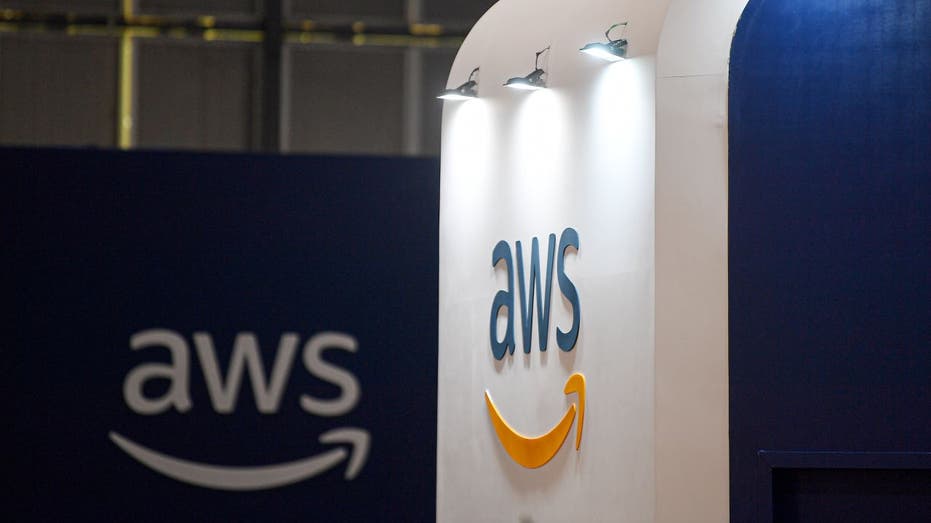AI and the cloud to unlock billions in annual productivity gains for small and medium businesses: report
AWS and Accenture found that smaller businesses can boost productivity by billions of dollars annually by adopting cloud and AI tools
How should investors think about Artificial Intelligence?
‘Barron’s Roundtable’ panelists discuss the evolution of AI and how investors can look for opportunities with the emerging technology.
Cloud computing and artificial intelligence (AI) technologies are going to unlock significant gains in productivity and job creation as they’re adopted by small and medium businesses tackling economic and societal challenges in fields like education, healthcare and agriculture according to new research.
Amazon Web Services (AWS) and Accenture released a report on how businesses with fewer than 250 employees in those three industries are poised to drive significant increases in economic output in the U.S. and around the world as they increasingly adopt technologies like AI and cloud computing. Micro, small and medium enterprises (MSMEs) comprise about 99% of all global firms, 70% of jobs and account for 60% of gross domestic product across developed economies.
The research found that cloud-enabled micro, small and medium enterprises (MSMEs) are projected to unlock $79.8 billion in combined annual productivity benefits by 2030 in the U.S. healthcare, education, and agriculture sectors. At a global level, those figures rise to $161 billion in annual gains for those three sectors across the 12 countries with advanced economies covered in the research.
"These companies, because they are more nimble, more agile, can pivot a lot quicker so if they see an opportunity, if they see a problem, it’s these kinds of companies that usually are solving it," Ben Schreiner, head of innovation for small and medium businesses at AWS, told FOX Business. "This group of companies are the disruptors in most industries, it’s not usually the big corporations, it’s usually the smaller ones that create innovations and often get acquired by the big companies."
AWS LOOKS TO HELP SMALL AND MEDIUM BUSINESSES LEVERAGE AI TOOLS

Research from Amazon Web Services and Accenture found that micro, small and medium enterprises adopting cloud tools and AI are poised to unlock billions in productivity in the healthcare, education and agriculture sectors through this decade. ((Photo By Eóin Noonan/Sportsfile for Web Summit Rio via Getty Images) / Getty Images)
"I think the reason they’re so well positioned is they’re looking at the problem differently," he added. "They have access now to the tools that these big companies have access to thanks to AWS helping democratize access. And they’re able on our platform to try things very, very quickly and iterate quickly to see if they’re solving the problem or if they need to pivot in a different direction."
Cloud-enabled micro, small and medium enterprises (MSMEs) are defined in the research as adopting at least basic levels of cloud technology that don’t necessarily require specialized knowledge and cover capabilities like cloud-based storage, web-based email, or simple office tools and applications.
WHAT IS ARTIFICIAL INTELLIGENCE (AI)?
About 44% of MSMEs globally are currently at the basic level of adoption, and the research expects 90% of all businesses That number declines to 19% for intermediate adoption, which focuses on more specialized needs for things like customer relationship management, project management, or cloud databases.
That figure declines to 13% for advanced adoption, which is defined as the use of AI, generative AI and machine learning (ML) for sophisticated tasks like operating an AI or ML platform, big data analytics, fraud detection or supply chain forecasting.

MSMEs in the healthcare sector will increasingly use the cloud and AI to help personalize patients' care as well as make record-keeping and billing more efficient. (iStock / iStock)
AMAZON, APPLE, MICROSOFT, OTHER BIG TECH FIRMS DESIGNATED ‘GATEKEEPERS’ BY EU
In the healthcare sector, the research from AWS and Accenture projected that by 2030 there will be over 23 million annual telehealth consultations in the U.S. that are facilitated by MSMEs using the cloud and AI to make healthcare more accessible and personalized.
"There’s a great many opportunities whether it’s telehealth and just making it more accessible to people in need of healthcare so they’re not having to go into a hospital and maybe clog up the ER. Helping small clinics either with claims and collections and the payers and payees – that whole dynamic," Schreiner said. "The technology is empowering these companies to see kind of a broken system and trying to find ways to improve this system ultimately so that there’s better care."
"I think our physicians and everyone are doing the best they can, and I think the more information, the more data about a person’s history, their particular situation, and then the available options and just trying to match as best we can the care for the person is probably where I’m most excited," he added.
| Ticker | Security | Last | Change | Change % |
|---|---|---|---|---|
| AMZN | AMAZON.COM INC. | 208.72 | -1.60 | -0.76% |
| ACN | ACCENTURE PLC | 236.76 | -3.86 | -1.60% |
GROUNDBREAKING AI IMPLANTS HELP STROKE VICTIM ‘TALK’ FOR FIRST TIME IN NEARLY TWO DECADES

Tens of millions of children and adults are projected to increasingly use e-learning and AI-powered education tools over the course of the decade. (iStock / iStock)
In the education sector, the report projected that 19 million primary school and high school students in the U.S. will engage in e-learning via cloud-enabled MSMEs in 2030, in addition to around 61 million adults accessing education online. It found that will unlock about $27.5 billion in annual productivity benefits in the sector.
"I think there’s room for improvement on kind of the adaptive learning and really tailoring learning to the kids and what the kids need," Schreiner explained. "I’m a very visual person, I’m a very audible person – if all I was told was ‘read the book, take the test,’ I would struggle in that kind of mode of learning. And I think having AI as a part of learning and adapting so that you’re not studying things you already know and you’re spending your valuable time learning things and actually building your knowledge base."

AWS and Accenture project that the number of U.S. farms using precision agriculture techniques will rise from one in six to one in three by 2030, unlocking $7 billion in annual productivity gains. (Photo by JIM WATSON/AFP via Getty Images) / Getty Images)
GET FOX BUSINESS ON THE GO BY CLICKING HERE
The research projected that by 2030, one in eight farms globally will use precision agriculture technologies supported by tools like AI and the cloud – a notable increase from the current level of one in 34 farms. In the U.S., that figure is expected to rise from one in six farms to one in three farms, which would unlock an estimated $7 billion in productivity benefits.
"There are small and medium businesses helping with precision agriculture," Schreiner explained. "So using technology whether it’s from the quality of the soil, the weather, and really just dialing in to have the best yield possible and making even small farmers more effective and efficient. But think of the ecosystem of technology firms that could help even large farming organizations be more effective and efficient."




















